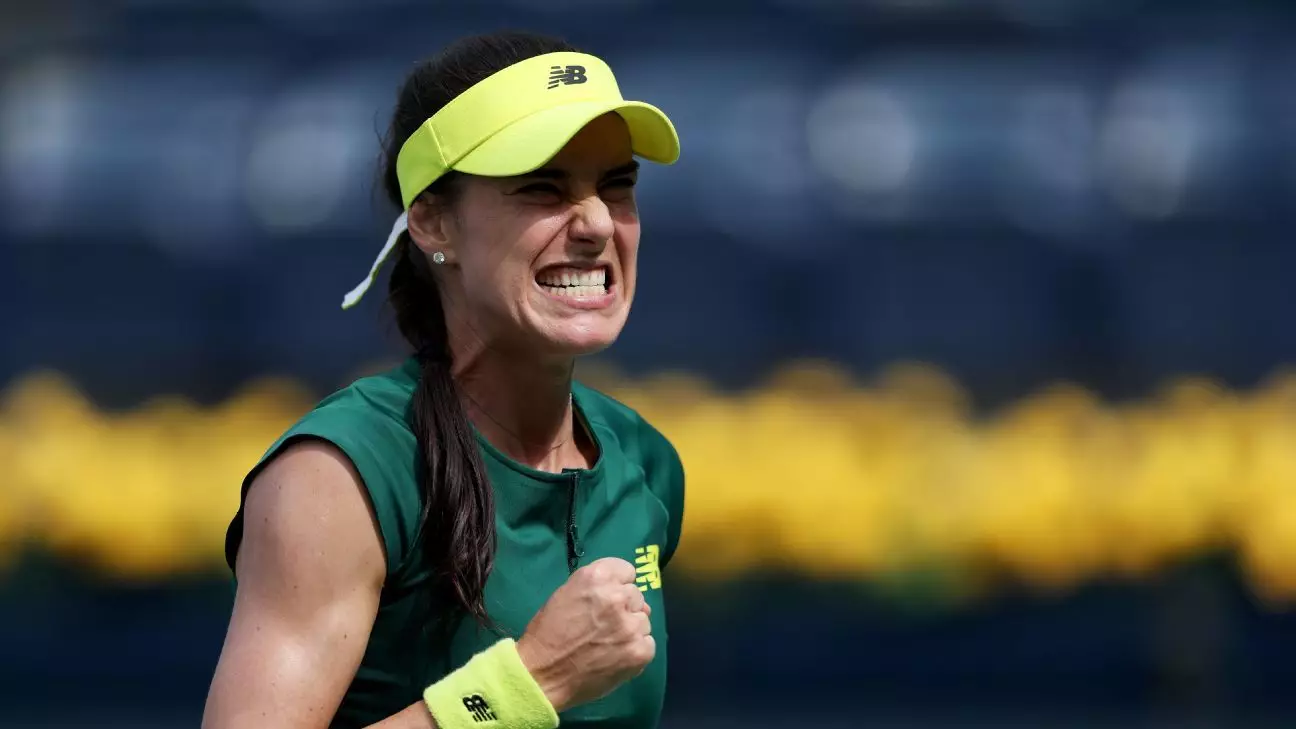In a significant move that reverberates beyond the tennis court, Daria Kasatkina, a prominent figure in women’s tennis, has declared her transition from representing Russia to proudly waving the Australian flag. At the age of 27, Kasatkina stands at the crossroads of personal and professional evolution; her decision to change her nationality comes alongside a heartfelt acknowledgment of her newly granted permanent residency in Australia. The power of her announcement lies not just in the shift of allegiance but in its broader implications for identity and belonging in a tumultuous world.
A Personal Awakening: Navigating Identity in Public Life
Kasatkina’s journey has been anything but straightforward. Born and raised in Russia, her upbringing was steeped in the richness of her homeland, which she earlier represented fervently through her athletic pursuits. However, her vocal stance against Russia’s policies—particularly those regarding LGBTQIA+ rights and the ongoing conflict with Ukraine—highlights her courage in challenging prevailing norms. By openly sharing her identity as a member of the LGBTQIA+ community, she has become a voice for many, navigating her personal truths in a society that often silences dissent. Her statement that the day she came out felt like “a backpack of stones fell off my shoulders” is a poignant reminder of the burdens faced by those who challenge societal expectations.
Relocation and Resilience: Finding Home in Australia
The decision to embrace Australia as her new home speaks volumes about the search for safety and acceptance. In a social media post, Kasatkina expressed her joy about making Australia her new base, describing it as a place that exudes warmth and openness. Such sentiments resonate deeply, especially for those who have battled for authenticity in environments that stifle free expression. Moving to Melbourne marks a strategic pivot both in her personal life and professional career, where the Australian Open has become synonymous with a higher degree of inclusivity.
Her relationship with fellow athlete Natalia Zabiiako further underscores this new beginning. Sharing their lives through a popular YouTube channel, they’ve built a narrative that celebrates love and determination against all odds. The couple’s influence extends beyond the courts and into the hearts of many followers, inspiring a cult of bravery among those living under repressive regimes.
Facing the Future: Challenges and Aspirations
As Kasatkina steps into this new chapter, she acknowledges the difficulties inherent in such a transformative decision. Her love for her home country remains undeniable, yet her ambition to forge a path in a more accepting environment takes precedence. It’s an act fraught with emotional complexity—balancing respect for one’s roots while pursuing an identity that aligns more harmoniously with personal beliefs and aspirations.
Kasatkina’s decision is a bold statement that echoes a sentiment increasingly common among athletes who find themselves at the intersection of sport, politics, and personal identity. Her next professional outing at the Charleston Open will serve as more than just a competition; it will be a declaration of her newfound allegiance and resilience.
In an unpredictable world, Daria Kasatkina stands as a beacon of courage and transformation, showcasing the possibility of redefining one’s identity amidst societal shadows. Her journey illustrates that home isn’t just a place; it’s a feeling of belonging, acceptance, and love—elements that transcends borders and politics.

